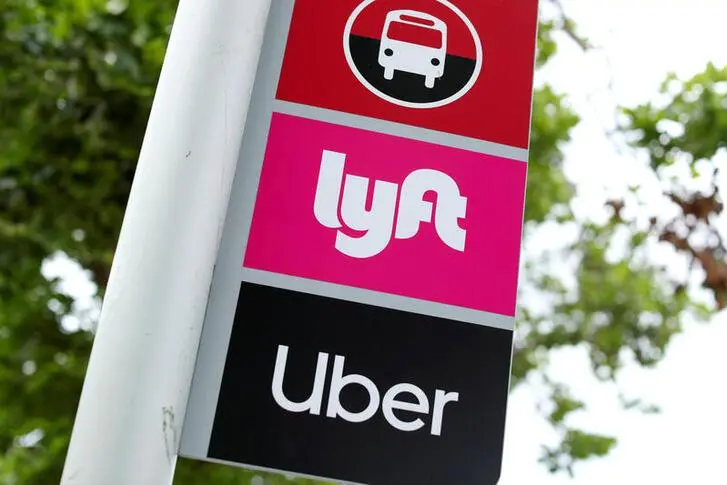PHOTO
(The author is a Reuters Breakingviews columnist. The opinions expressed are her own.)
SAN FRANCISCO- Uber Technologies’ labor win only goes so far. California voters approved a ballot measure that exempts the ride-sharing firm from treating drivers as employees but requires it to pay some healthcare benefits and other perks. Uber avoided punishing costs. But the pricey political fight underscores how much the environment for the shared economy has changed.
The most expensive state ballot campaign in California history reflects the stakes. Uber, smaller rival Lyft, food-delivery service DoorDash and other similar firms have spent about $200 million, while opposing union groups doled out about $20 million. The push by the companies paid off on Tuesday night, with 58% of voters backing their initiative.
The measure stops short of forcing Uber to offer perks employees often get, like sick leave. And Uber won’t incur the full $500 million a year that Wedbush Securities had estimated a full-blown change to worker status would have cost.
But what is a start for workers is still something of a cost for Uber. For example, driver contractors who work at least 25 hours a week will get healthcare subsidies equal to 82% of the average premium for each month.
So the victory for Uber and its peers is relative. The lockdowns prompted by Covid-19 have kept people from not only going out and about, but using shared rides services, too. Uber’s food delivery service has helped close the gap. But Lyft hasn’t been so lucky.
Both firms are still incurring big losses, even under conditions in which drivers were contractors and benefits were mediocre. Uber’s current $63 billion market value is a far cry from its once vaunted $100 billion price tag before its 2019 initial public offering. While its stock has done well since the beginning of the year, up about a fifth, Lyft’s 40% decline suggests that all is not well.
As the U.S. state with the largest economy and population, California's policies often have a national effect. Uber’s success could help it in similar labor fights in New York, Congress and elsewhere. Yet even if similar changes in other states fall in Uber’s favor, the relative win shows that the gig might be up.
CONTEXT NEWS
- With 80% of the results in, 58% of state voters on Nov. 3 approved California Proposition 22, which defines drivers for rideshare and delivery apps as independent contractors. The ballot measure also adopts certain labor policies for those companies.
- They include providing healthcare subsidies equal to 82% of the average California insurance premium for each month for workers who average at least 25 hours of work per week. Companies would also have to provide occupational accident insurance that covers at least $1 million in medical expenses and lost income.
- Disapproval of the ballot measure would have meant that a new state law requiring certain workers to be treated as employees would apply to drivers for Uber Technologies, Lyft, DoorDash and other similar services.
(The author is a Reuters Breakingviews columnist. The opinions expressed are her own.)
(Editing by Lauren Silva Laughlin and Karen Kwok) ((gina.chon@thomsonreuters.com; Reuters Messaging: gina.chon.thomsonreuters.com@reuters.net))





















